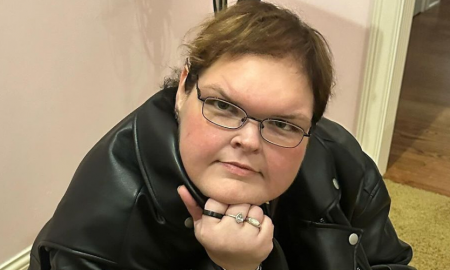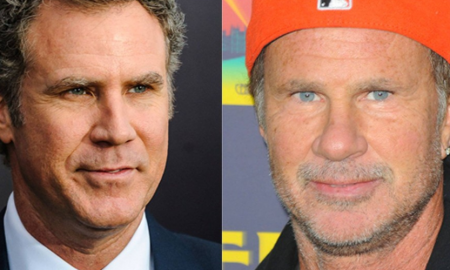
Mental Health Microaggressions You Should Be Aware of

Ever heard of microaggressions before? Though they are subtle, microaggressions are all about actions, behaviors, comments, or environments that are distinctly intolerant and are targeted against marginalized individuals or groups of individuals. To be precise, it’s a form of discrimination bague and ambiguous. Those who get involved in microaggressions, do so owing to their hidden biases in them. They may not realize that. As a result, the discriminated individual might find it tough to confront them or speak up to prove why any comment made or action taken against them was discriminatory. The reason is that the comments or behavior might not appear prejudiced superficially. Following are some mental health aggressions you should be aware of. But before everything, you must understand what microaggressions are all about.
What is Microaggression?
 Dr. Chester M Pierce, a psychiatrist of African-American origin, was the first individual to come up with the term, microaggression. The term is used to indicate a subtle and at the same time, harmful action, behavior, comment, or environment made to target a marginalized individual or a bunch of people.
Dr. Chester M Pierce, a psychiatrist of African-American origin, was the first individual to come up with the term, microaggression. The term is used to indicate a subtle and at the same time, harmful action, behavior, comment, or environment made to target a marginalized individual or a bunch of people.
This can be either intentional or unintentional. When it comes to targeting a marginalized group of people with microaggression, race and ethnicity are the most familiar. But any individual or group can be the target of such discrimination. People can also face discrimination based on their gender, religion, class, age, mental health, disability, or orientation. Such people can make them vulnerable not only to microaggression but to microaggression as well. Now, take a look at the examples of mental health aggressions.
Terminology and Its Misuse
Society has the habit of using terms for certain behavior and other derogatory comments that individuals suffering from any mental health can experience, such as OCD, bipolar, depression, and so on. Describing your current mood or situation using terms that are related to mental illnesses can have a detrimental effect. Those around you who are suffering from such mental conditions will be affected.
False Assumptions and Stereotyping
 Those who suffer from mental health issues can also be vulnerable to false assumptions and stereotyping. That is also a type of microaggression. If you avoid them or maintain some distance from them perceiving they are dangerous and untrustworthy, label them as crazy since they are on medication and undergoing therapy, omitting them from any kind of social activity because of your thinking that they are not fit, all these will be considered as signs of microaggression. These shameful beliefs about a certain individual who is affected by mental illness reflect the narrow-mindedness of a person. Not everyone is affected by the same type of mental health disorder. Therefore, putting them in one category is not only divisive but hard-hearted and uncaring too.
Those who suffer from mental health issues can also be vulnerable to false assumptions and stereotyping. That is also a type of microaggression. If you avoid them or maintain some distance from them perceiving they are dangerous and untrustworthy, label them as crazy since they are on medication and undergoing therapy, omitting them from any kind of social activity because of your thinking that they are not fit, all these will be considered as signs of microaggression. These shameful beliefs about a certain individual who is affected by mental illness reflect the narrow-mindedness of a person. Not everyone is affected by the same type of mental health disorder. Therefore, putting them in one category is not only divisive but hard-hearted and uncaring too.
Avoiding Acknowledgement
If one pretends that he or she is not suffering from a mental health condition, that will do them no good. It will often make them feel ignored and undermined. An individual can refrain from acknowledging a mental illness in several ways, such as a parent refusing to treat a child or send them to therapy, not intending to take part in any conversation about mental illness, or awkwardly treating a mentally ill person as if mental issues are a taboo or is a subject that doesn’t need any attention or mention.
The cause of this microaggression is the apprehension about how severe a mental illness can be or the lack of knowledge and understanding about the mental health issue is all about. Avoiding discussion on or refraining from discussing or treating a mental health issue will frustrate the individual more and instead of the problem getting cured, it will keep on lingering.
Blame and Shame
 Some people believe that if someone is suffering from mental illness, they have failed to stay healthy. They are held responsible for their illness. After facing this toxic mindset, people who have a slight hope of recovering become more ashamed of their illness. This leads to the deterioration of their mental state. Blaming and shaming take them down the dumps. They will lack self-confidence, which is harmful to their survival.
Some people believe that if someone is suffering from mental illness, they have failed to stay healthy. They are held responsible for their illness. After facing this toxic mindset, people who have a slight hope of recovering become more ashamed of their illness. This leads to the deterioration of their mental state. Blaming and shaming take them down the dumps. They will lack self-confidence, which is harmful to their survival.
Educating yourself is the basic step to stopping this microaggression. One should always accept someone’s condition open-mindedly. If you know someone who is struggling with mental health issues, show a little empathy and try to be supportive as much as you can.
More in Relaxation
-
`
6 Unique Approaches to Finding Meaning in Life
Have you ever gazed at a starry sky and pondered the vastness of existence, wondering what your place is in it...
March 5, 2024 -
`
Want to Look Like a Royal For a Week? Try These Creative Budget-Friendly Tips
Have you ever caught yourself daydreaming about strolling through the halls of a grand palace, donning an outfit that screams elegance,...
February 26, 2024 -
`
Famous Celebrities Who Admitted to Mental Health & Personal Struggles
In a world where fame often seems like the ultimate achievement, the glitz and glamour often overshadow the personal struggles many...
February 19, 2024 -
`
Mastering Medicare – 5 Expert Tips for Maximum Benefit
Are you ready to harness the full potential of your Medicare benefits? From managing your prescriptions to staying on top of...
February 12, 2024 -
`
Struggling With Bipolar Disorder? Lifestyle Changes You Should Make for Stability
Introduction: The Rollercoaster of Bipolar Disorder Living with bipolar disorder is akin to riding an emotional rollercoaster. One moment, you’re soaring...
February 7, 2024 -
`
Swipe Right…or Left? 3 Crucial Questions Before Your Next Beauty Haul
Remember that thrill of unboxing a shiny new beauty product? The promise of glowing skin, luscious locks, or eyes that sparkle...
February 3, 2024 -
`
Tammy Slaton of 1000-Lb. Sisters Opens Up About Her Lesbian Journey After Losing Husband
In a world where authenticity often takes a backseat, Tammy Slaton, the spirited personality from “1000-Lb. Sisters,” brings a refreshing dose...
January 27, 2024 -
`
From Registration to Receiving: How to Enroll in Toys for Tots
The holiday season is a time of joy and celebration, but for families facing financial challenges, ensuring that their children experience...
January 16, 2024 -
`
How to Practice Self-Care? 5 Tried & Trusted Tips
Self-care is a buzzword that has been tossed around a lot lately, but what does it really mean? At its core,...
January 9, 2024















You must be logged in to post a comment Login